Keeping Connected Globally
Many U.S.-based nomads don't just stick within the borders of America in their adventures. And with international travel, there are special considerations for mobile internet connectivity.
Whether exploring via RV, van, boat, or utilizing short-term hotels or home rentals - many of our mobile nomads will cross into international territory at some point and want to maintain a mobile internet connection.
If you're a member, please log in above to see your exclusive content.
Don't need a membership? Other ways you can support our work here:
-
As seen in our videos!
-
Get a FREE Month of Starlink!
And our team will get one too!
-
Get a FREE Month of T-Mobile Unlimited Data
Join the Calyx Institute, and get a bonus month - and we do too!
-
Save $20 on Visible
Verizon's prepaid phone plan, we also get a $20 credit.
-
Leave a Tip!
Send our team some beer money!!
-
Share About Us!
Link to our content, tell others about MIRC. It's Free!
It is with huge gratitude to our members for making the free unbiased educational content on our site possible. We're not sponsored, you'll find no 3rd party ads and we don't sell gear or data plans.
Our members get exclusive access to our in-depth content, classrooms, vendor discounts (that can save you more than membership!), alerts, insider info and interactive guidance. They can even book private advising sessions.
If mobile internet is an important part of your lifestyle, consider helping make MIRC possible by joining or supporting our mission.
International Mobile Internet Tips Video
Our international video overviews some general tips for traveling internationally with mobile internet:
Also, in August 2024, we hosted a MIRC LIVE event to discuss real-world examples of using mobile internet internationally. Team member Andy discussed how he and Suzy stayed connected during their recent trip to Europe:
General Mobile Internet International Tips
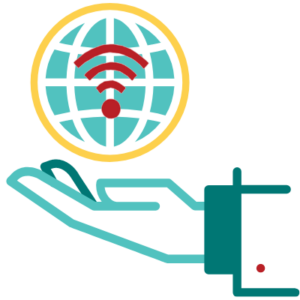 The hurdle with international mobile internet is not that other countries don’t have plentiful options. The hiccup is getting connected to those options as nonresidents who are just passing through the country on a short-term basis.
The hurdle with international mobile internet is not that other countries don’t have plentiful options. The hiccup is getting connected to those options as nonresidents who are just passing through the country on a short-term basis.
These tips apply to both Canada and Mexico – as well as many other international travel destinations.
We also provide in-depth, specific guides for U.S.-based RVers and boaters traveling to Canada, Mexico, and the Bahamas. Additionally, we offer a guide focused on Canadians who are traveling to the U.S.
For our full collection of International Mobile Internet travel resources:
International Travel Resources
Wi-Fi
 Public Wi-Fi is plentiful abroad, just like most other basic necessities of life.
Public Wi-Fi is plentiful abroad, just like most other basic necessities of life.
You will often be able to connect at campgrounds, coffee shops, cafes, libraries, hotels, airports, and more. You may be surprised at just how plentiful basic Wi-Fi can be, even in otherwise primitive countries.
When traveling outside the USA, Wi-Fi is likely going to be your cheapest and easiest connectivity solution, especially if you’re only going to be in an area for a brief time when it may not be worthwhile tracking down other options.
If you’re planning to travel internationally, it is important to include gear in your aresnal that is easily portable and can be used for connecting to a Wi-Fi source:
Using Wi-Fi as a Mobile Internet Source - Selecting Long Range Wi-Fi Extending Gear
As with all public Wi-Fi, the usual caveats apply.
You'll likely encounter intermittent speeds, may need to connect in crowded public places with little privacy, and should consider taking precautions to keep your connection secure.
Using a virtual private network (VPN) is a good option for protecting yourself when regularly surfing on public Wi-Fi, whether internationally or domestically.
TIP: A lot of major global websites will automatically switch to the local language if you are connecting via a local Wi-Fi internet service provider. However, there is often a way to override the detected language, if you can navigate the menus to find it. Using a VPN to appear to be in the United States however, will almost always keep your web experience in English.
Mobile Internet Security, Privacy, and VPNs
Voice

There are several ways to keep your voice phone service working while traveling abroad.
Most modern cell phones support GSM international roaming, so the simplest option for voice services is just to activate international roaming with your home carrier. This allows your number to stay active, so you can receive calls wherever you go.
Be sure to check the specifics of your plan. ou may discover that you have a basic voice service option that will meet your needs. While default roaming rates can be expensive, you don’t have to answer every call. Keeping your phone active lets you see who’s calling, giving you the choice to answer or return the call later.
If you plan to make or receive calls frequently, avoiding standard international rates is key. Many carriers offer international packages with discounted calling rates, often as low as $15/month, to keep your home number active affordably.
If keeping your domestic number isn’t important, local SIM cards in many countries provide substantial savings on calls, though managing incoming calls may be trickier since you’ll have a different number.
Alternatively, internet-based services like Google Voice, WhatsApp, FaceTime, Facebook Messenger, and Skype allow you to make calls over Wi-Fi or mobile data—bypassing traditional cellular networks entirely.
TIP: If you decide to get a local SIM card, look into ways that you can forward calls from your U.S. number so that people back home can still easily reach you.
Cellular Data
 The most important international data tip is to turn off data roaming on your devices when near international borders—unless you're certain your plan includes good international coverage. Remember, the nearest cellular tower could be across the border, leading to unintended roaming charges before you’ve even left your country!
The most important international data tip is to turn off data roaming on your devices when near international borders—unless you're certain your plan includes good international coverage. Remember, the nearest cellular tower could be across the border, leading to unintended roaming charges before you’ve even left your country!
Default international data roaming fees can be shockingly high, and many travelers have faced massive bills from accidental roaming. While some smartphone plans will notify you when you’re roaming internationally, data limits and costs can still be restrictive.
If you do need cellular data overseas, you may be able to avoid the default roaming rates by activating an international roaming plan with your U.S.-based carrier – saving a substantial amount in the process. If your existing plan includes international roaming data, be sure to know whether your data is capped (either daily or by billing cycle) or throttled to a slow speed after using your allotment.
Roaming with your home carrier may be ideal if you’re only planning a short trip, will primarily be relying on Wi-Fi, or won’t be needing much data to get by. But for longer trips or heavier needs – it often makes sense to look into other options to support your data needs, including global data devices or international SIMs.
Satellite Data
Mobile satellite internet comes in three main flavors: small low-bandwidth communicators, low earth orbit (LEO) satellites and dishes, and geostationary orbit satellites and dishes. LEO and hand-held devices have the most practicality for international travel.

Starlink Satellite Internet
Starlink has been the breakout LEO satellite company and now has coverage in many international locations. Starlink delivers high-speed data under various plans for fixed location and nomadic travelers.
Starlink has plans with options that fit all kinds of traveling needs, including in-motion, open ocean, and continental and world travel. Given Starlink's myriad plan options, only some of them are suitable for international travel/roaming.

Choosing Starlink is not necessarily a perfect internet solution for all travelers. But with any type of nomadic travel, Starlink can be a great option with flexibility to switch between data plans as needed to suite your current phase of travel.
Starlink has made frequent changes to its plans since it began its service, so for the most up-to-date information about Starlink for mobile internet check out our Starlink Guide:
Other Satellite Options
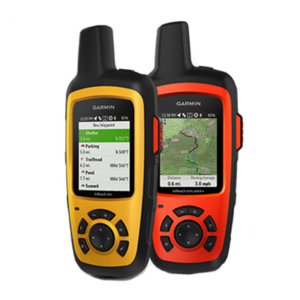
The extreme opposite in terms of data usage/demand are hand-held satellite communicators. If you are interested in a basic communication tool to keep in touch with family, especially in remote areas, and maybe get the local weather forecast, a hand-held mobile satellite communicator may be a good solution. These allow simple 160 character texts, and work internationally and in the remotest of locations.
For more information about mobile satellite, including hand-held devices, LEO, and geostationary satellite options, check out our other guides on Mobile Satellite:
Mobile Satellite Options Alternatives to Starlink
Data Saving Tips for Capped Plans
As noted above, most U.S.-based plans that permit data roaming into other countries place data usage caps on the roaming portions of those plans. If you are purchasing a local SIM card to use in another country, you may also find yourself dealing with data caps. Some satellite-based plans also have data caps.
Data caps can be a challenge if you are used to unlimited data - so you may want some help to make the most of your data limits.
We've got a complete guide covering tips to lowering your data usage here:
Minimizing Data Usage & Managing Common Data Hogs
Member Exclusive Content Below
Member Exclusive Content In This Guide
Has this guide been helpful so far?
Well.. there's a lot more below available to our members. As well as dozens of other guides like this, videos, classrooms, forums, webinars and more. All specifically created for helping keep RVers, cruisers and nomads online.
Consider Becoming a Member
If mobile internet is an important part of your lifestyle, a membership can help keep you connected with these exclusive benefits:
- in-depth exclusive content
- interactive guidance
- vendor discounts
- alerts & insider tips
- classroom
- community
Free Content Like This Made Possible By Our Members!
We are community funded via our premium membership program - allowing us to focus on creating unbiased quality, in-depth, constantly updated content. We don't accept 3rd party advertising, we're not sponsored and we don't sell 'stuff'.
Already a member?
Log in to continue with this guide.
Check out the Topics Covered in the Member Section:
U.S. Cellular Carrier International Roaming Policies
We go in-depth tracking the roaming allowances and policies of the flagship plans offered by the major U.S. cellular carriers.
Global SIMs
This section covers options for global SIMs - services where you purchase a device & SIM card that automatically works across the world. Options include Solis, Airalo, Roaming Man, GlocalMe, and more.
Obtaining local SIMs
For extended international travel, sometimes it just makes sense to source local options. This section will help you be better prepared for that.
Summary: Research, Planning, & Flexibility Are Key
U.S.-based travelers looking to do some international exploration have a variety of options for staying connected. With some research, planning, and flexibility, many nomads exploring outside the confines of the U.S. have been successful in maintaining some form of mobile internet.
Additional Reading
Related Guides:
Related News Stories:
Explore the Resource Center
Have Questions?
Join our 'Library Desk':
Internet for RVers & Cruisers Facebook Group
We cross post news articles and guides, and can help point you in the right direction to our content here on the resource center.
It is with gratitude to our premium members that we're able to offer our free content - and for that, they also have access to our member Q&A areas for more in-depth guidance.
Become a Member
 The MIA is our premium membership - designed for those who consider mobile internet an important part of their lifestyle.
The MIA is our premium membership - designed for those who consider mobile internet an important part of their lifestyle.
In thanks for making content like this possible, we offer a bunch of additional perks. From interactive guidance, in-depth member exclusive content, discounts, alerts, classroom and ability to book private advising sessions.
Stay In the Know
We're constantly tracking the industry and analyzing new developments for mobile travelers. If you'd like to receive updates, we offer several ways:
- Subscribe to our free monthly newsletter
- Subscribe to our News Stories RSS Feed
- Subscribe to our YouTube Channel
- Follow our Facebook Page


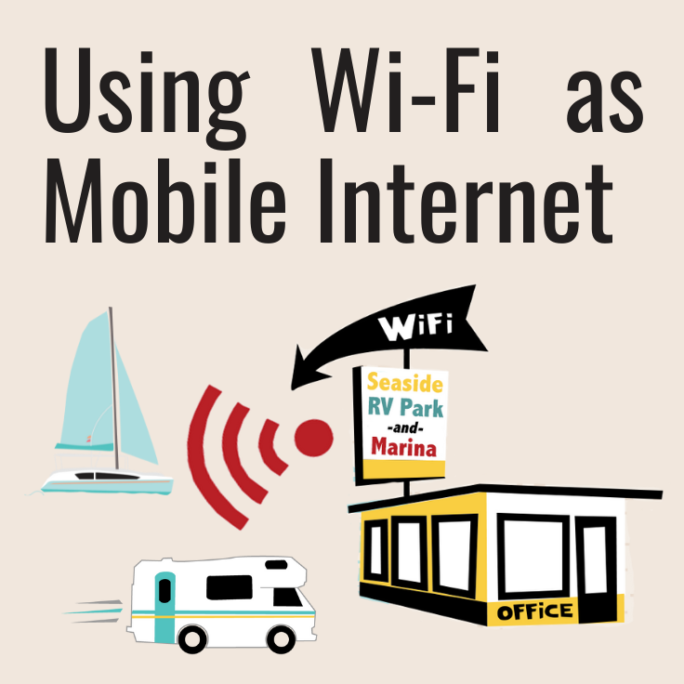
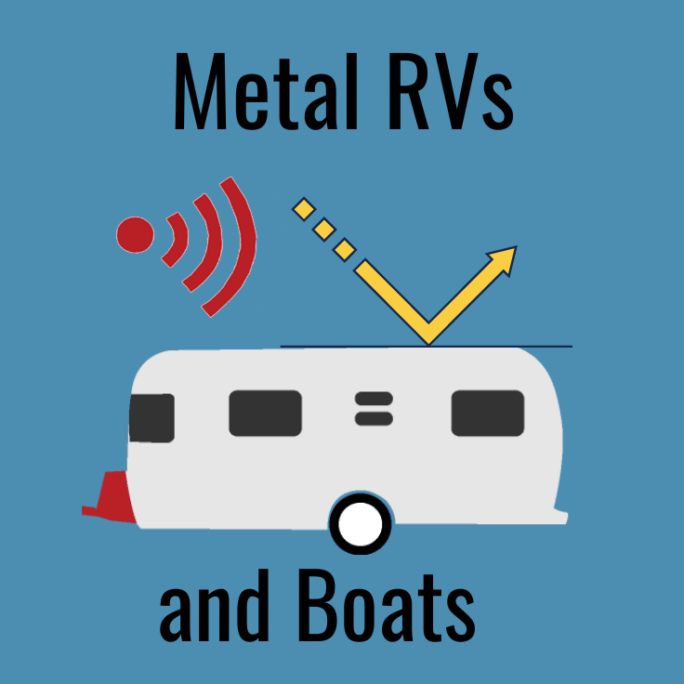
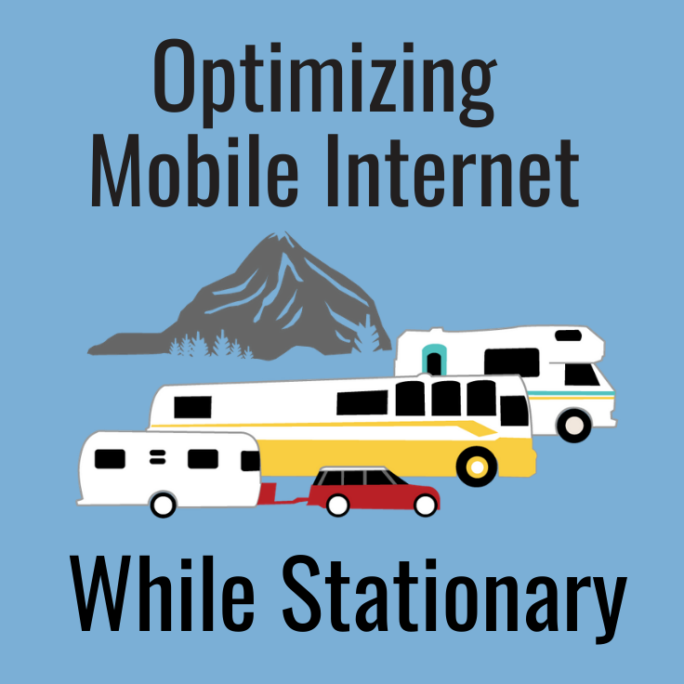


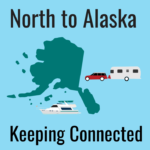



 Mobile Internet Resource Center (dba Two Steps Beyond LLC) is founded by Chris & Cherie of
Mobile Internet Resource Center (dba Two Steps Beyond LLC) is founded by Chris & Cherie of